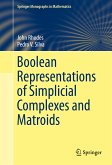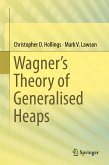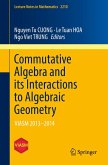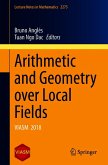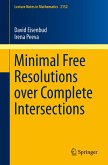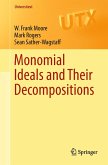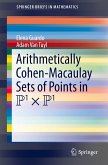This book presents a graduate-level course on modern algebra. It can be used as a teaching book - owing to the copious exercises - and as a source book for those who wish to use the major theorems of algebra.
The course begins with the basic combinatorial principles of algebra: posets, chain conditions, Galois connections, and dependence theories. Here, the general Jordan-Holder Theorem becomes a theorem on interval measures of certain lower semilattices. This is followed by basic courses on groups, rings and modules; the arithmetic of integral domains; fields; the categorical point of view; and tensor products.
Beginning with introductory concepts and examples, each chapter proceeds gradually towards its more complex theorems. Proofs progress step-by-step from first principles. Many interesting results reside in the exercises, for example, the proof that ideals in a Dedekind domain are generated by at most two elements. The emphasis throughout is on real understanding as opposed to memorizing a catechism and so some chapters offer curiosity-driven appendices for the self-motivated student.
The course begins with the basic combinatorial principles of algebra: posets, chain conditions, Galois connections, and dependence theories. Here, the general Jordan-Holder Theorem becomes a theorem on interval measures of certain lower semilattices. This is followed by basic courses on groups, rings and modules; the arithmetic of integral domains; fields; the categorical point of view; and tensor products.
Beginning with introductory concepts and examples, each chapter proceeds gradually towards its more complex theorems. Proofs progress step-by-step from first principles. Many interesting results reside in the exercises, for example, the proof that ideals in a Dedekind domain are generated by at most two elements. The emphasis throughout is on real understanding as opposed to memorizing a catechism and so some chapters offer curiosity-driven appendices for the self-motivated student.
Dieser Download kann aus rechtlichen Gründen nur mit Rechnungsadresse in A, B, BG, CY, CZ, D, DK, EW, E, FIN, F, GR, HR, H, IRL, I, LT, L, LR, M, NL, PL, P, R, S, SLO, SK ausgeliefert werden.
"While this book requires a level of mathematical maturity that can reasonably be expected from a student entering graduate study, it does not assume too much-and that may be its greatest strength. ... Exercises are interesting and challenging. The work is well suited for a full-year graduate course in algebra. The benefit of years of teaching by both authors ... is evident in the style and exposition." (R. J. Bumcrot, Mathematical Reviews, February, 2016)
"This book covers the fundamental concepts and results in what is generally labelled as 'abstract', 'higher' or 'modern' algebra at a graduate level. ... Due to an impressive amount of material presented in a very articulated manner, this book is a valuable addition to the literature. ... One of the strong points of the book is the information shared with readers in footnotes offering a broader perspective onthe topic." (Mihai Cipu, zbMATH 1346.00003, 2016)
"This is a text for a one-year course in abstract algebra at the first-year graduate level. ... this is an interesting take on graduate algebra, and anybody who teaches a course on that subject should certainly take a look at this book." (Mark Hunacek, MAA Reviews, September, 2015)
"This book covers the fundamental concepts and results in what is generally labelled as 'abstract', 'higher' or 'modern' algebra at a graduate level. ... Due to an impressive amount of material presented in a very articulated manner, this book is a valuable addition to the literature. ... One of the strong points of the book is the information shared with readers in footnotes offering a broader perspective onthe topic." (Mihai Cipu, zbMATH 1346.00003, 2016)
"This is a text for a one-year course in abstract algebra at the first-year graduate level. ... this is an interesting take on graduate algebra, and anybody who teaches a course on that subject should certainly take a look at this book." (Mark Hunacek, MAA Reviews, September, 2015)



